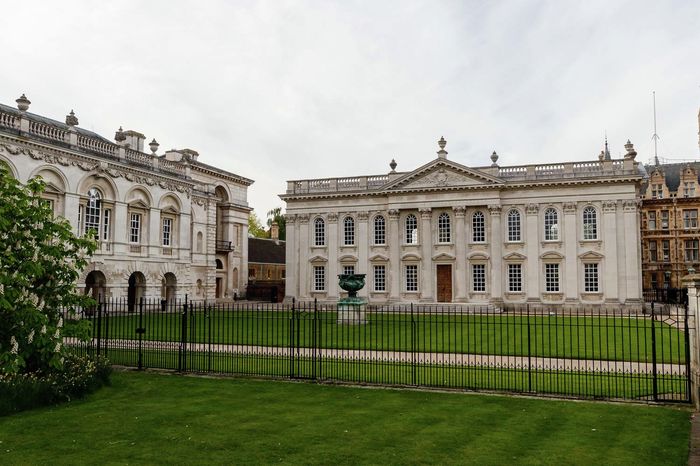Christ’s commits to full divestment from fossil fuels by 2030
Christ’s commitment to divest came the day after Cambridge University announced their divestment plans

Christ’s College Council voted in favour of full divestment from the fossil fuel industry in a meeting on Friday October 2nd. This decision follows a three-year campaign by students with the College U-turning on its previous rejection of divestment in November 2018.
The vote took place a day after Vice Chancellor Stephen Toope declared in his virtual start-of-year address that Cambridge University will be removing both direct and indirect investments in the fossil fuel industry from its £3.5bn endowment over the next ten years.
Christ’s decision to remove both their direct and indirect investments in the fossil fuel industry by 2030 marks the largest public divestment commitment by a Cambridge college to date, and the second college to commit to full divestment within a specified time frame.
Christ’s announced that it “will not hold direct investments in the shares or bonds of fossil fuel producers and their suppliers”. This has been defined as companies “deriving 10% or more of their revenues from fossil fuel production”.
The College has already sold their direct investments, including a £301,000 investment in oil company BP, in addition to removing £174,000 invested in oil services company Schlumberger and £546,000 in mining company Franco Nevada.
Christ’s have also announced that they “expect to have no material direct or indirect exposure to investments in fossil fuel producers and suppliers by 2030.” At present, Christ’s invests approximately £2m in the fossil fuel industry through its own indirect investments, and a further £395,000 through the Cambridge University Endowment Fund.
Christ’s will join only two Cambridge colleges - Queens and Clare Hall - in fully divesting from the fossil fuel industry. Nine other colleges - Newnham, Robinson, St John’s, Fitzwilliam Peterhouse, Emmanuel, Jesus, Downing and Selwyn - are partially divested.
In response to the decision, the student-led divestment campaign, Christ’s Climate Justice, commented: “this decision, coming just a day after the University’s announcement, sets a strong precedent that it is utterly unacceptable for colleges to maintain any links to the fossil fuel industry whatsoever. We expect to see other colleges rapidly following suit, and the University moving to cut their extensive research and recruitment ties.”
The College’s decision follows a three-year campaign by the Christ’s Climate Justice Campaign. They told Varsity “this is a huge win for our campaign after three years of consistent pressure from across the college community, and demonstrates the collective power students have to overcome stubborn opposition from college management.”
In November 2017, a JCR motion was passed in support of full divestment and 175 students signed a petition calling on Christ’s to divest. A policy proposal produced by students was then submitted to the College Council in November 2018, who then proceeded to vote against divestment.
In April 2019, submitted an updated 38-page divestment report to the Council in collaboration with the JCR and MCR. Following this, the College Council announced that it would reconsider divestment but delayed its decision until October 2020.
Two open letters from College members were submitted to Council prior to their reconsideration of divestment. The first was signed by over 170 Christ’s alumni who called on the College divest, emphasising that “the destructive practices” of the fossil fuel industry “are disproportionately affecting the global south,” and arguing that “divestment is an effective and tangible means of taking institutional action on climate change.”
High profile signatories of the letter include Jane Martinson and Sathnam Sanghera, columnists at The Guardian and The Times respectively, and the first female fellow of Christ’s and Honorary Fellow Linda Colley, as well as theatre director Natalie Abrahami, comedian Matt Green, and economist Professor Tim Jackson.
Notable alumni of Christ’s College have testified to the strength of student pressure. Zeid Ra’ad Al Hussein, Jordanian diplomat and former UN High Commissioner for Human Rights, said that “while Christ’s College must be applauded for its decision to divest from the fossil fuel industry, it is the students who organized and ran a masterful three-year campaign, that are most deserving of praise.”
A second letter, which similarly called upon the College to commit to full divestment, was signed by 40 incoming Christ’s freshers. The signatories urged the Council “to make a decision which demonstrates a meaningful investment in the futures of its current students, which are severely threatened by the climate crisis.”
Christ’s Climate Justice said “we have campaigned in solidarity with communities across the world facing the destructive impacts of fossil fuel extraction. Decisions like these highlight the urgent need to dismantle the fossil fuel industry, with a just transition for workers and reparative justice for communities impacted by neocolonial extractivism and climate breakdown.”
 News / Cambridge student numbers fall amid nationwide decline14 April 2025
News / Cambridge student numbers fall amid nationwide decline14 April 2025 Lifestyle / First year, take two: returning after intermission14 April 2025
Lifestyle / First year, take two: returning after intermission14 April 2025 News / First candidate to announce chancellorship bid pledges to tackle bullying 12 April 2025
News / First candidate to announce chancellorship bid pledges to tackle bullying 12 April 2025 News / Uni to ‘review’ tripos rankings and weekend lectures in undergrad teaching overhaul10 April 2025
News / Uni to ‘review’ tripos rankings and weekend lectures in undergrad teaching overhaul10 April 2025 Sport / Cambridge celebrate clean sweep at Boat Race 202514 April 2025
Sport / Cambridge celebrate clean sweep at Boat Race 202514 April 2025




